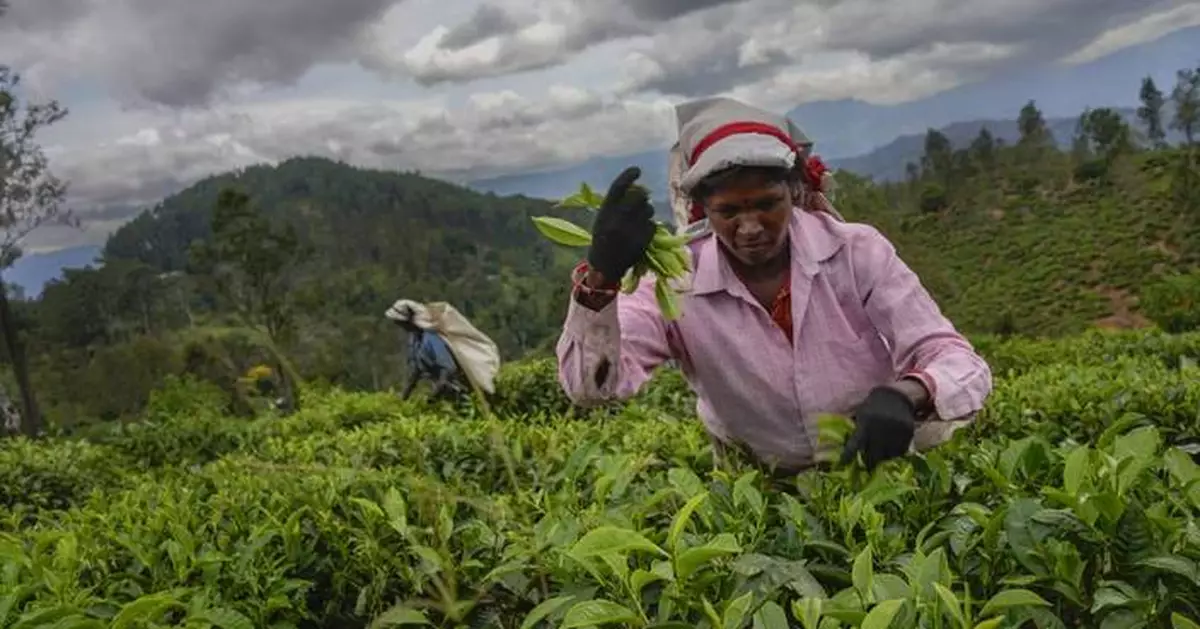SPRING VALLEY, Sri Lanka (AP) — Whoever Sri Lanka's next president is, Muthuthevarkittan Manohari isn't expecting much to change in her daily struggle to feed the four children and elderly mother with whom she lives in a dilapidated room in a tea plantation.
Both leading candidates in Saturday's presidential election are promising to give land to the country's hundreds of thousands of plantation workers, but Manohari says she's heard it all before. Sri Lanka's plantation workers are a long-marginalized group who frequently live in dire poverty, but they can swing elections by voting as a bloc.
Mahohari and her family are descended from Indian indentured laborers who were brought in by the British during colonial rule to work on plantations that grew first coffee, and later tea and rubber. Those crops are still Sri Lanka's leading foreign exchange earners.
For 200 years, the community has lived on the margins of Sri Lankan society. Soon after the country became independent in 1948, the new government stripped them of citizenship and voting rights. Around 400,000 people were deported to India under an agreement with Delhi, separating many families.
The community fought for its rights, winning in stages until achieving full recognition as citizens in 2003.
There are around 1.5 million descendants of plantation workers living in Sri Lanka today, including about 3.5% of the electorate, and some 470,000 people still live on plantations. The plantation community has the highest levels of poverty, malnutrition, anaemia among women and alcoholism in the country, and some of the lowest levels of education.
They're an important voting bloc, turned out by unions that double as political parties that ally with the country's major parties.
Despite speaking the Tamil language, they’re treated as a distinct group from the island’s indigenous Tamils, who live mostly in the north and east. Still, they suffered during the 26-year civil war between government forces and Tamil Tiger separatists. Plantation workers and their descendants faced mob violence, arrests and imprisonment because of their ethnicity.
Most plantation workers live in crowded dwellings called “line houses,” owned by plantation companies. Tomoya Obokata, a U.N. special rapporteur on contemporary forms of slavery, said after a visit in 2022 that five to ten people often share a single 10-by-12-foot (3.05-by-3.6 meter) room, often without windows, a proper kitchen, running water or electricity. Several families frequently share a single basic latrine.
There are no proper medical facilities in the plantations, and the sick are attended to by so-called estate medical assistants who do not have medical degrees.
“These substandard living conditions, combined with the harsh working conditions, represent clear indicators of forced labour and may also amount to serfdom in some instances,” Obokata wrote in a report to the U.N. high commissioner for human rights.
The government has made some efforts to improve conditions for the planation workers, but years of fiscal crisis and the resistance of powerful plantation companies have blunted progress. Access to education has improved, and a small group of entrepreneurs, professionals and academics descended from planation workers has emerged.
This year, the government negotiated a raise in the minimum daily wage for a plantation worker to 1,350 rupees ($4.50) per day, plus an additional dollar if a worker picks more than 22 kilos in a day. Workers say this target is almost impossible to achieve, in part because tea bushes are often neglected and grow sparsely.
The government has built better houses for some families and the Indian government is helping to build more, said Periyasamy Muthulingam, executive director of Sri Lanka's Institute of Social Development, which works on plantation worker rights.
But many promises have gone unfulfilled. “All political parties have promised to build better houses during elections but they don’t implement it when they are in power,” Muthulingam said.
Muthulingam says more than 90% of the planation community is landless because they have been left out of the government's land distribution programs.
In this election, sitting President Ranil Wickremesinghe standing as an independent candidate has promised to give the line houses and the land they stand on to the people who live in them, and help develop them into villages. The main opposition candidate, Sajith Premadasa, has promised to break up the plantations and distribute the land to the workers as small holdings.
Both proposals will face resistance from the plantation companies.
Manohari says she's not holding out hope. She's more concerned with what's going to happen to her 16-year-old son after he was forced to drop out of school due to lack of funds.
“The union leaders come every time promising us houses and land and I would like to have them," she said. "But they never happen as promised.”
Francis reported from Colombo, Sri Lanka.
Find more of AP's Asia-Pacific coverage at https://apnews.com/hub/asia-pacific
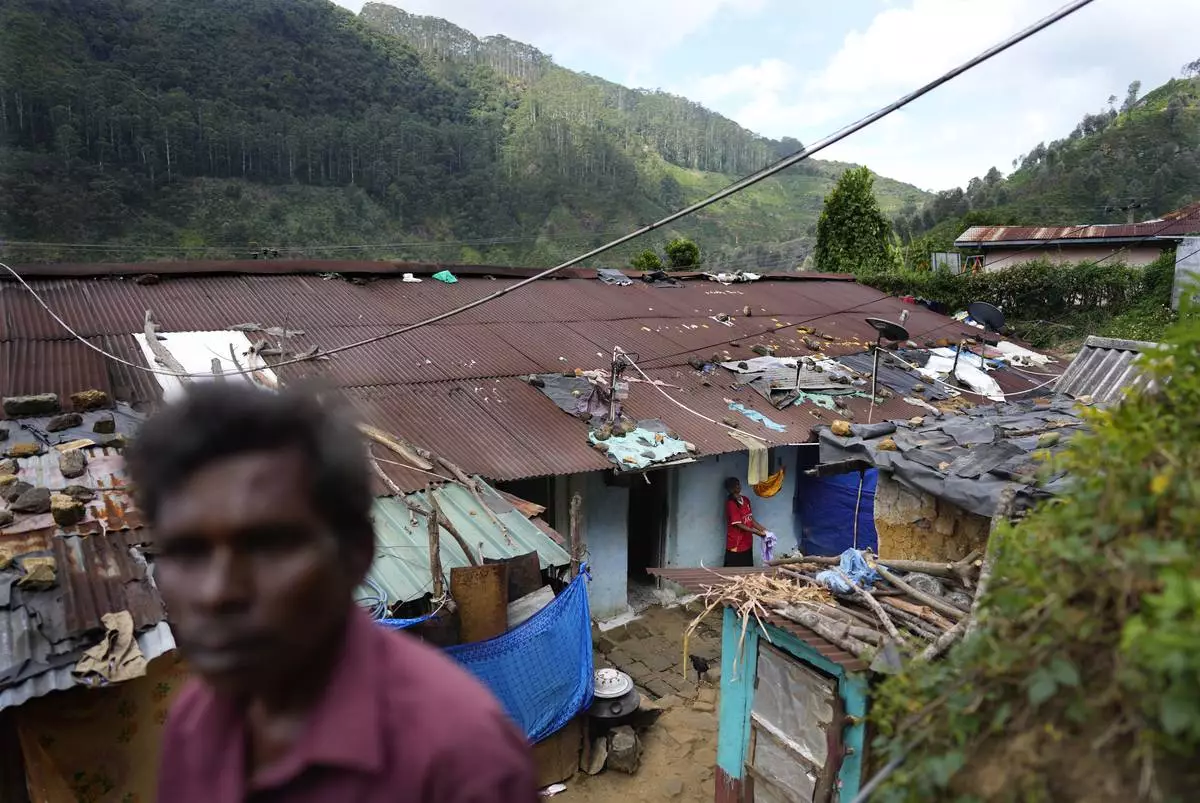
Tea plantation worker Muthuthewarkittan Manohari, far right, bathes her younger daughter Madubhashini outside their small living quarters in Spring Valley estate in Badulla, Sri Lanka, Monday, Sep. 9, 2024. (AP Photo/Eranga Jayawardena)
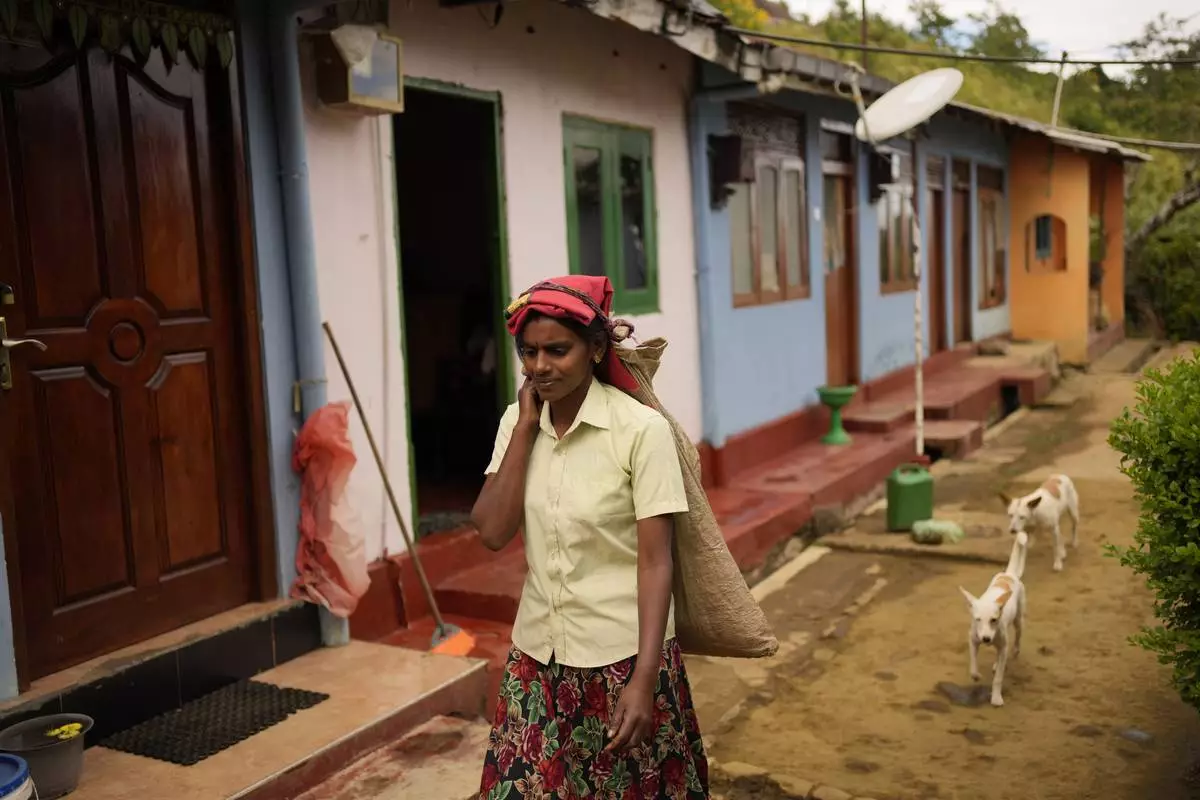
Tea plantation worker Adaraja Ali Rani leaves her living quarters to pluck tea tips in Spring Valley estate in Badulla, Sri Lanka, Tuesday, Sep. 10, 2024. (AP Photo/Eranga Jayawardena)
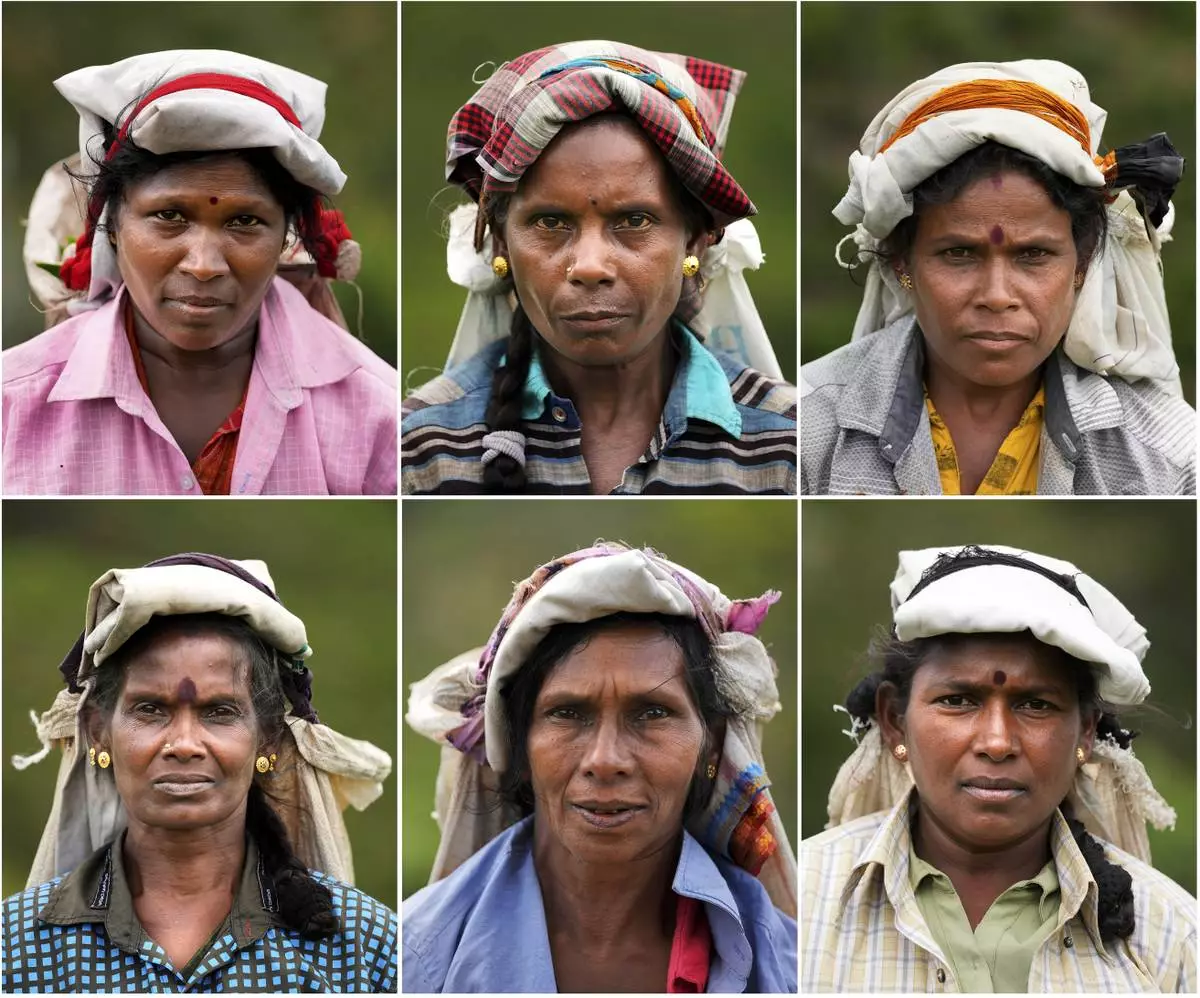
In this combo photograph, women tea plantation workers, clockwise from top left, Kanakambige Velayudan, Kaariman Thangamma, Tharmaraj Kaladevi, Dharmawathi, Kumaralingum Kamala, and Nadaraja Chitramani pose for a photograph during a break in their work at a tea plantation in Badulla, Sri Lanka, Tuesday, Sept. 10, 2024. (AP Photo/Eranga Jayawardena)
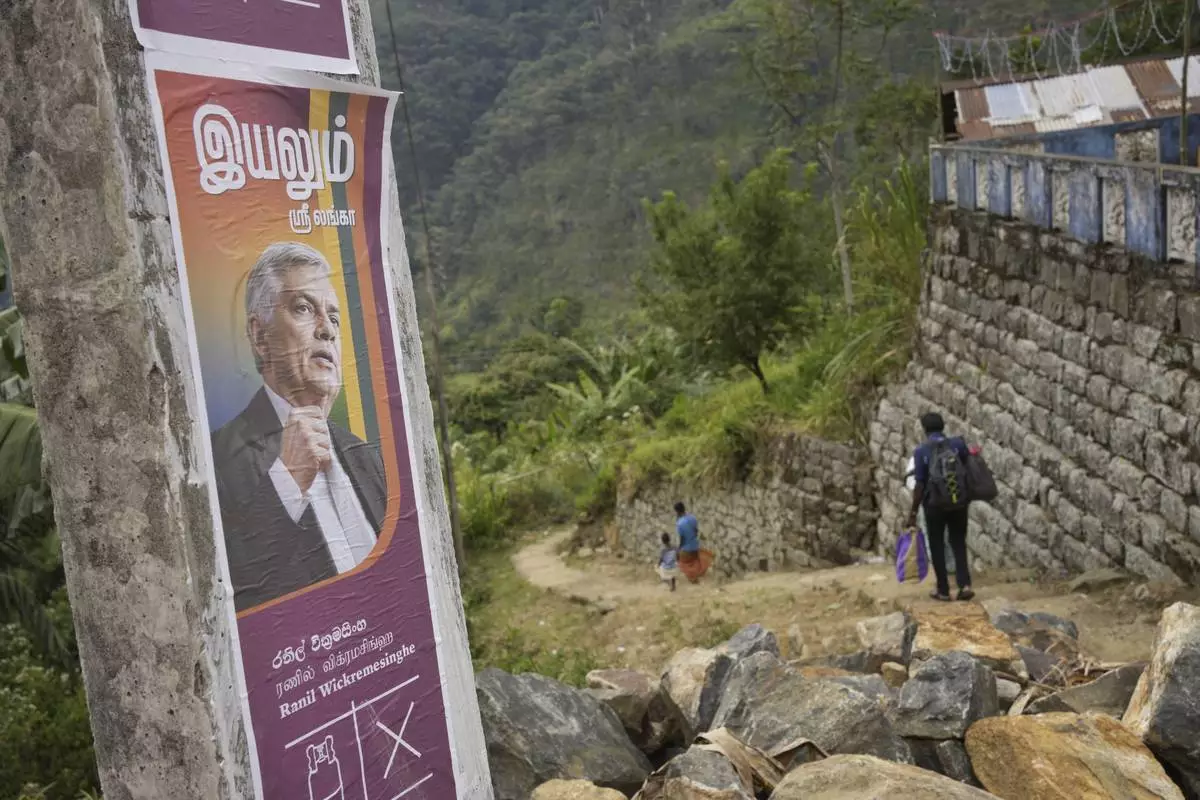
Tea plantation workers at Spring Valley Estate walk past an election poster with a portrait of the Sri Lankan president Ranil Wickremesinghe, ahead of the country's presidential election, in Badulla, Sri Lanka, Monday, Sept. 9, 2024. (AP Photo/Eranga Jayawardena)
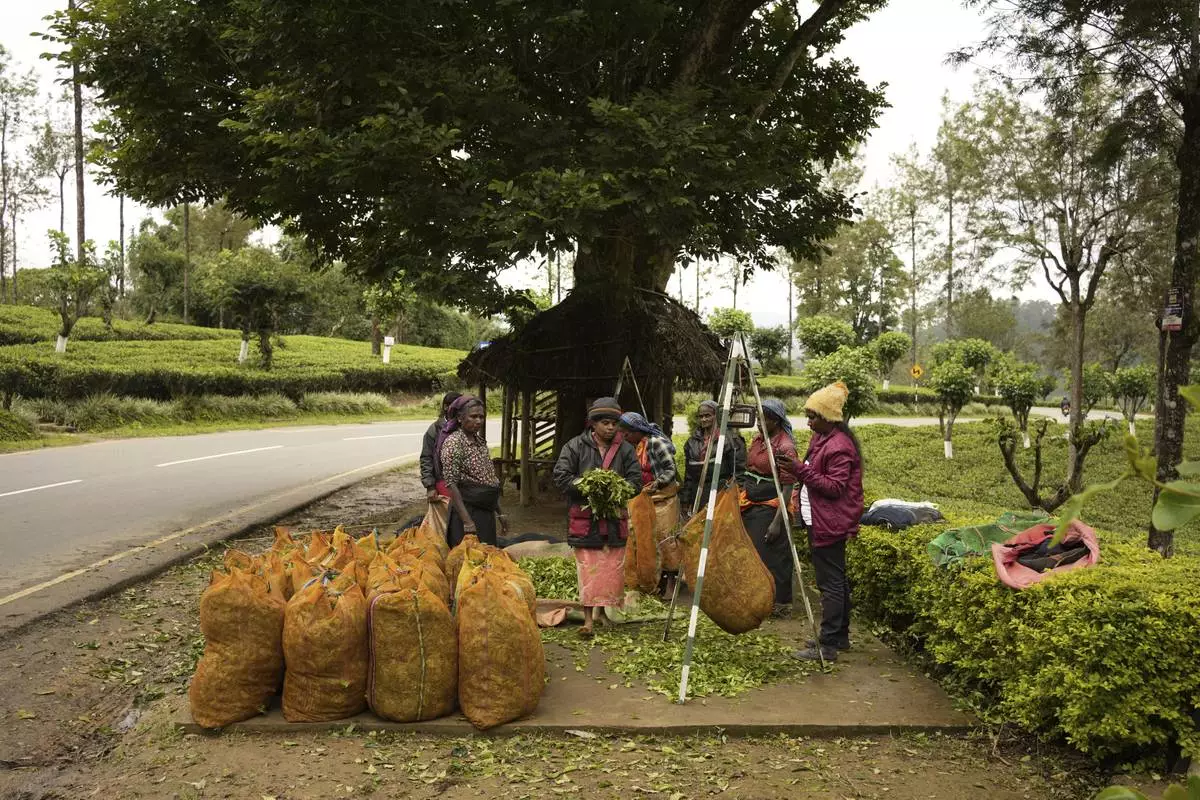
Women workers weigh plucked tea leaves at a tea plantation in Nanu Oya, Sri Lanka, Tuesday, Sept. 10, 2024. (AP Photo/Eranga Jayawardena)
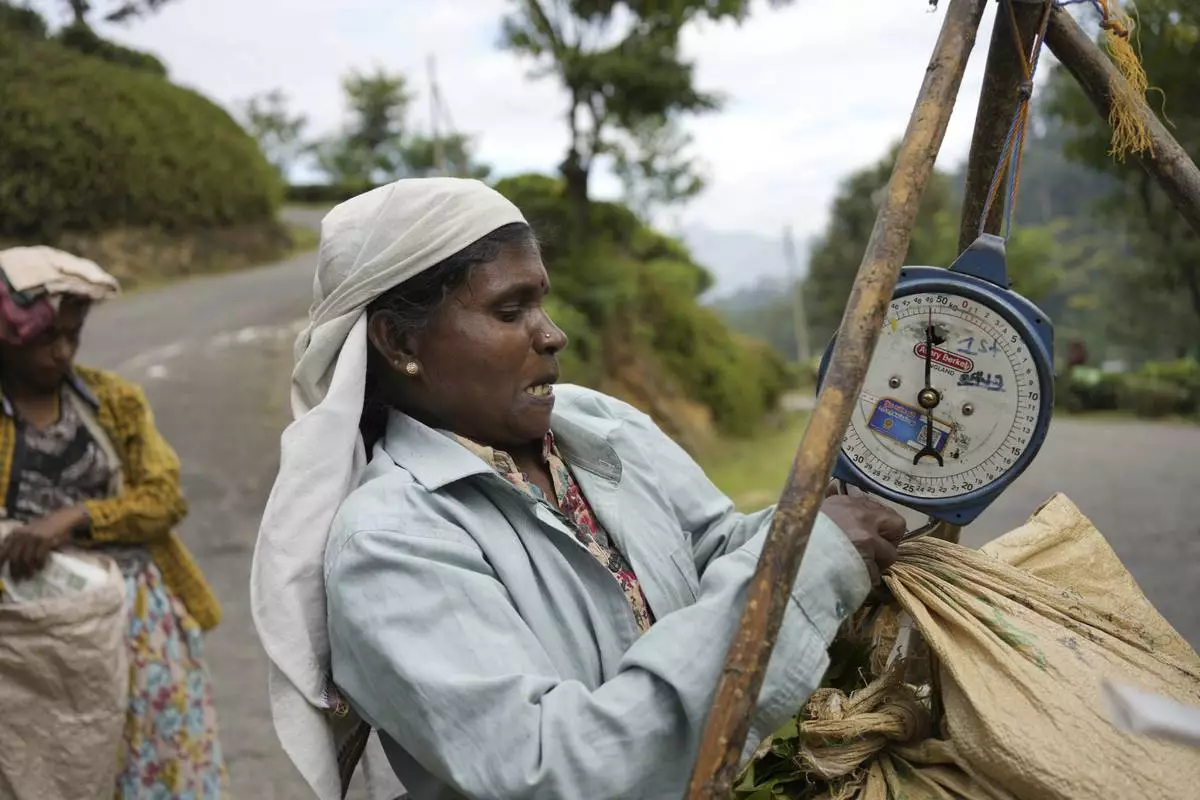
A woman tea plantation worker weighs a bag of tea leaves plucked at Spring Valley Estate in Badulla, Sri Lanka, Tuesday, Sept. 10, 2024. (AP Photo/Eranga Jayawardena)
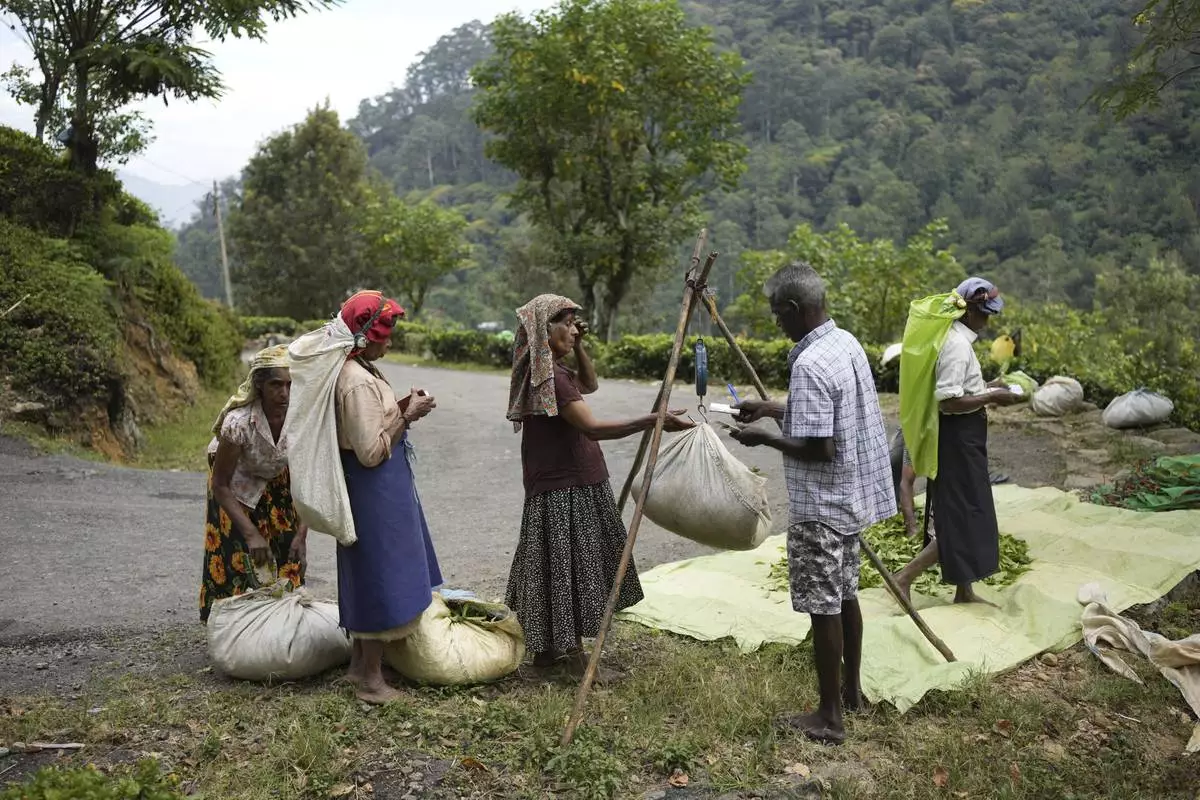
Tea plantation workers weigh plucked tea leaves at Spring Valley Estate in Badulla, Sri Lanka, Tuesday, Sept. 10, 2024. (AP Photo/Eranga Jayawardena)
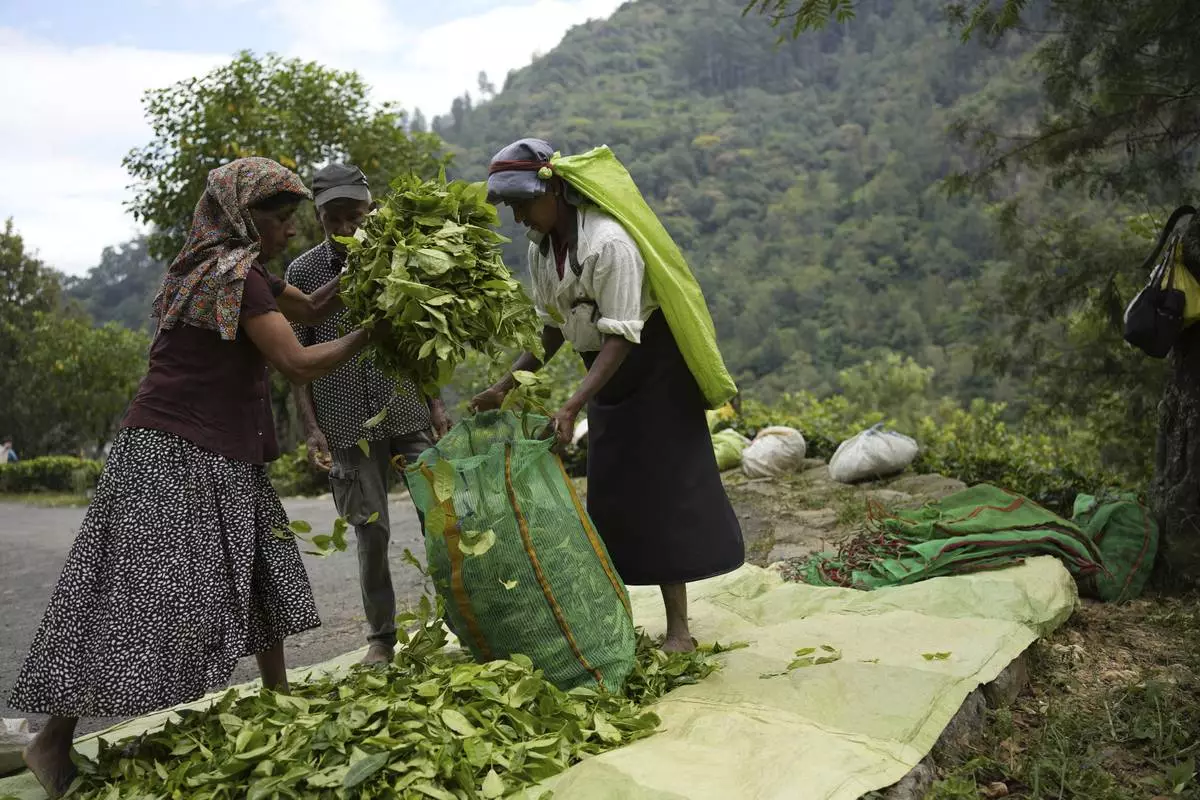
Tea plantation workers gather plucked tea leaves in a sack at Spring Valley Estate in Badulla, Sri Lanka, Tuesday, Sept. 10, 2024. (AP Photo/Eranga Jayawardena)
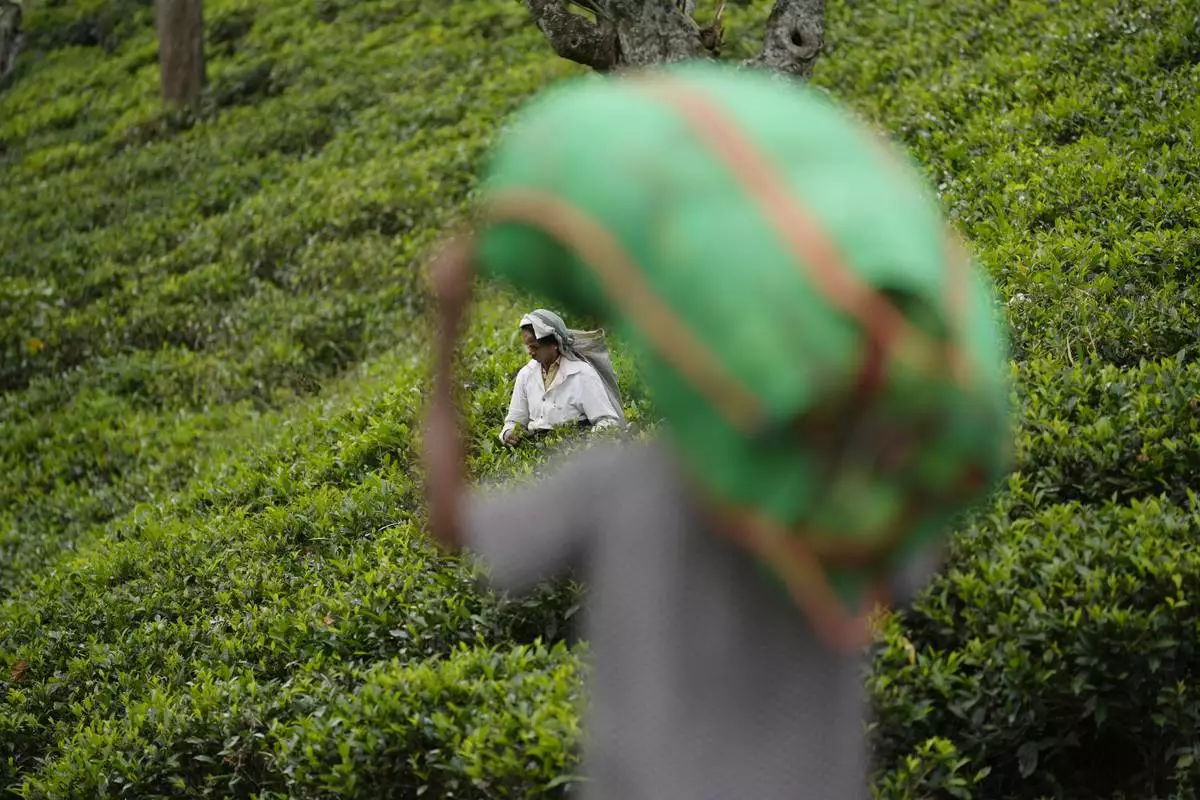
A tea plantation worker carries a sack of tea leaves as another plucks tea leaves at Spring Valley Estate in Badulla, Sri Lanka, Tuesday, Sept. 10, 2024. (AP Photo/Eranga Jayawardena)
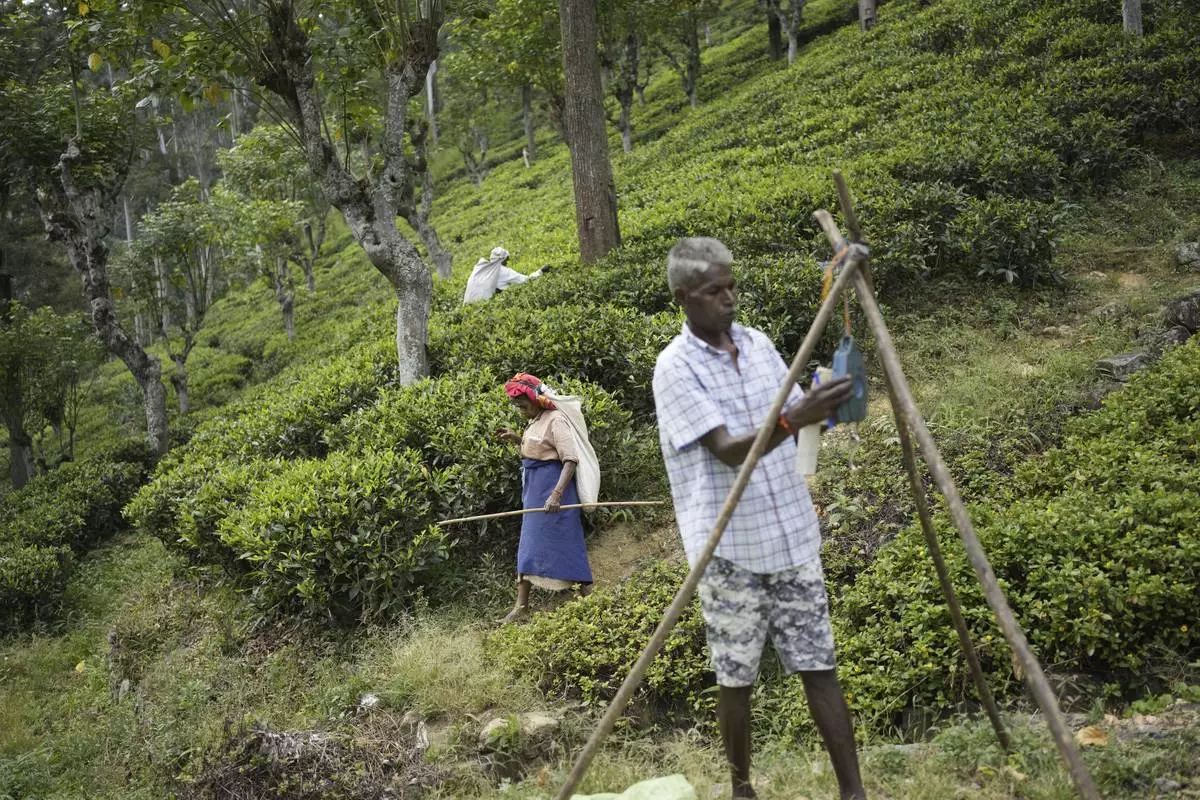
A tea plantation worker, right, sets up a structure for weighing tea leaves in Spring Valley Estate in Badulla, Sri Lanka, Tuesday, Sept. 10, 2024. (AP Photo/Eranga Jayawardena)
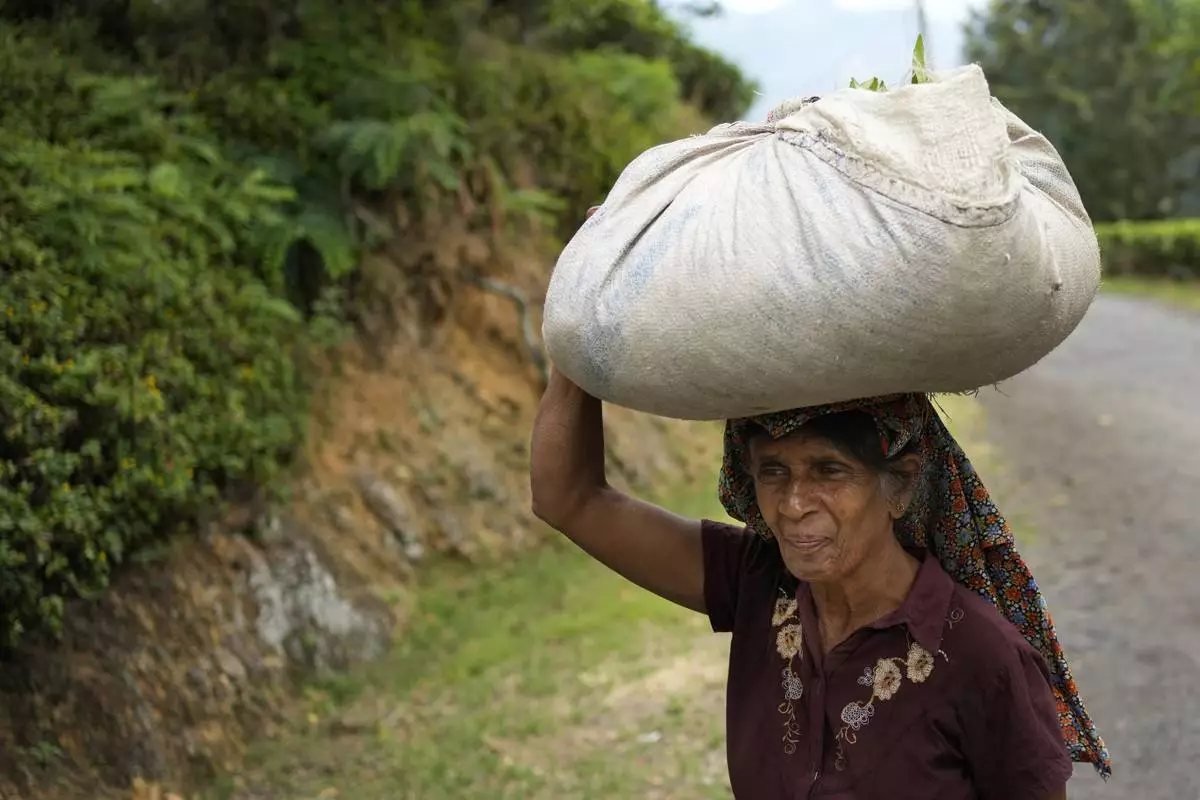
A tea plantation worker carries a bundle of tea leaves on her head at Spring Valley Estate in Badulla, Sri Lanka, Tuesday, Sept. 10, 2024. (AP Photo/Eranga Jayawardena)
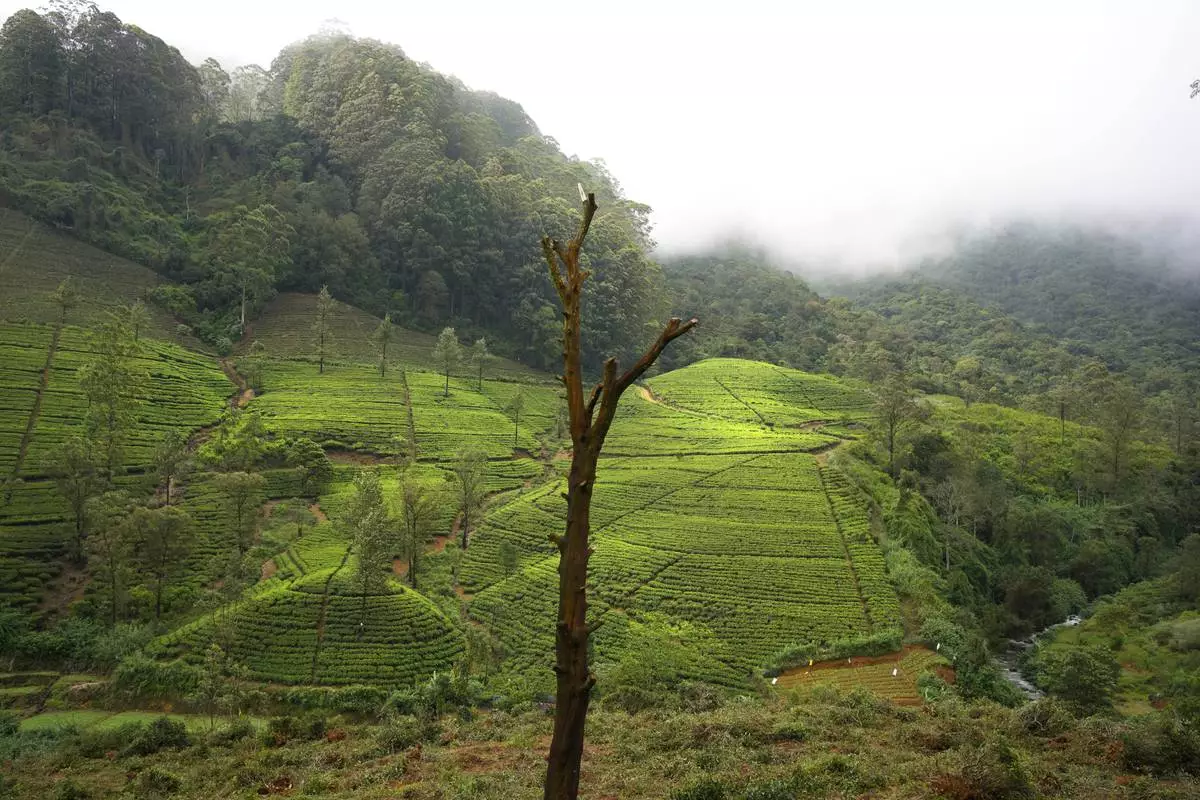
Tea bushes gleam in the afternoon light at a tea plantation in Nanu Oya, Sri Lanka, Tuesday, Sept. 10, 2024. (AP Photo/Eranga Jayawardena)
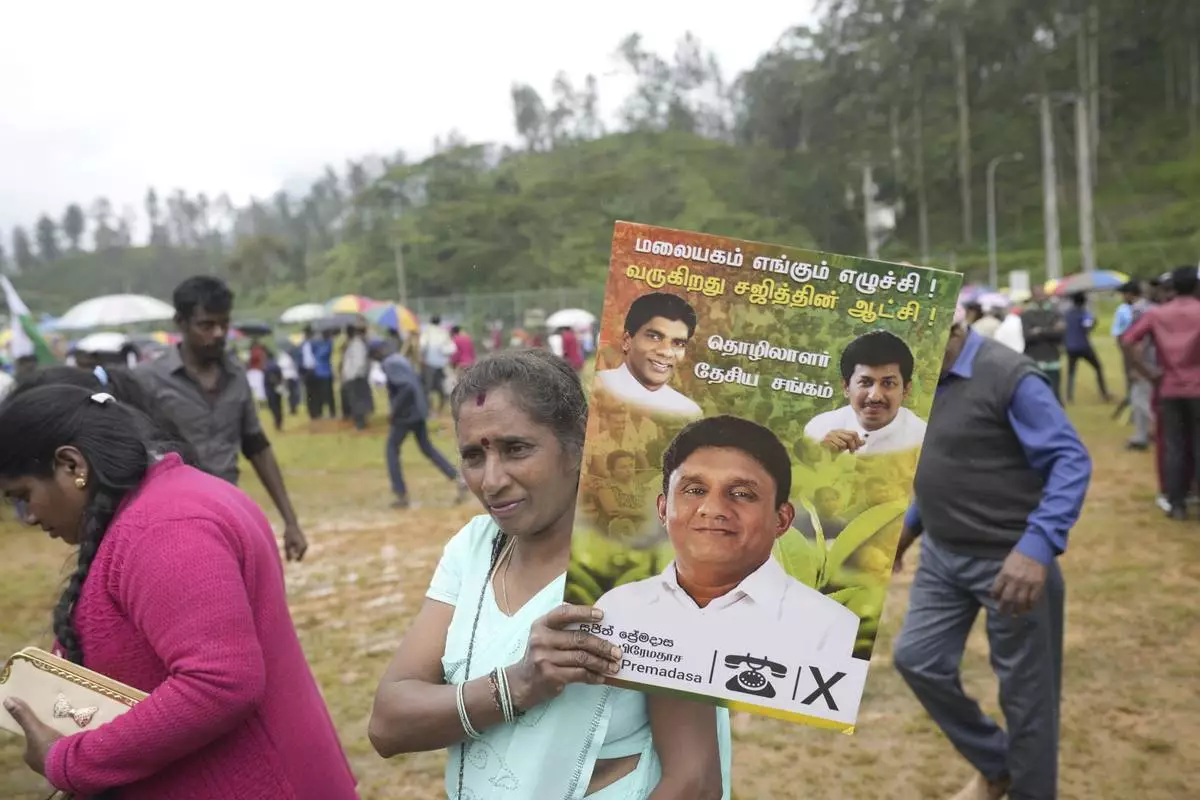
A tea plantation worker carries an election poster showing a portrait of the opposition leader and presidential candidate Sajith Premadasa, during an election rally in Thalawakele, Sri Lanka, Sunday, Sept. 8, 2024. (AP Photo/Eranga Jayawardena)
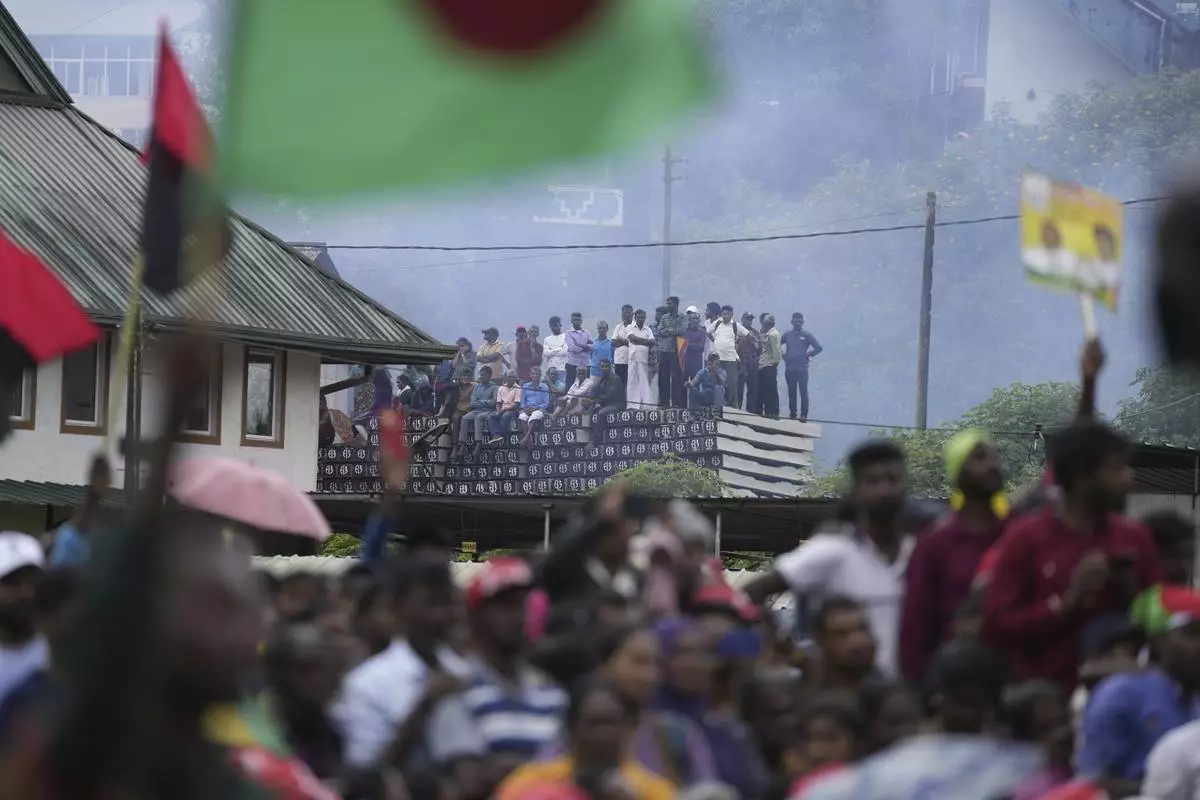
Tea plantation workers attend a presidential election rally in Thalawakele, Sri Lanka, Sunday, Sept. 8, 2024. (AP Photo/Eranga Jayawardena)
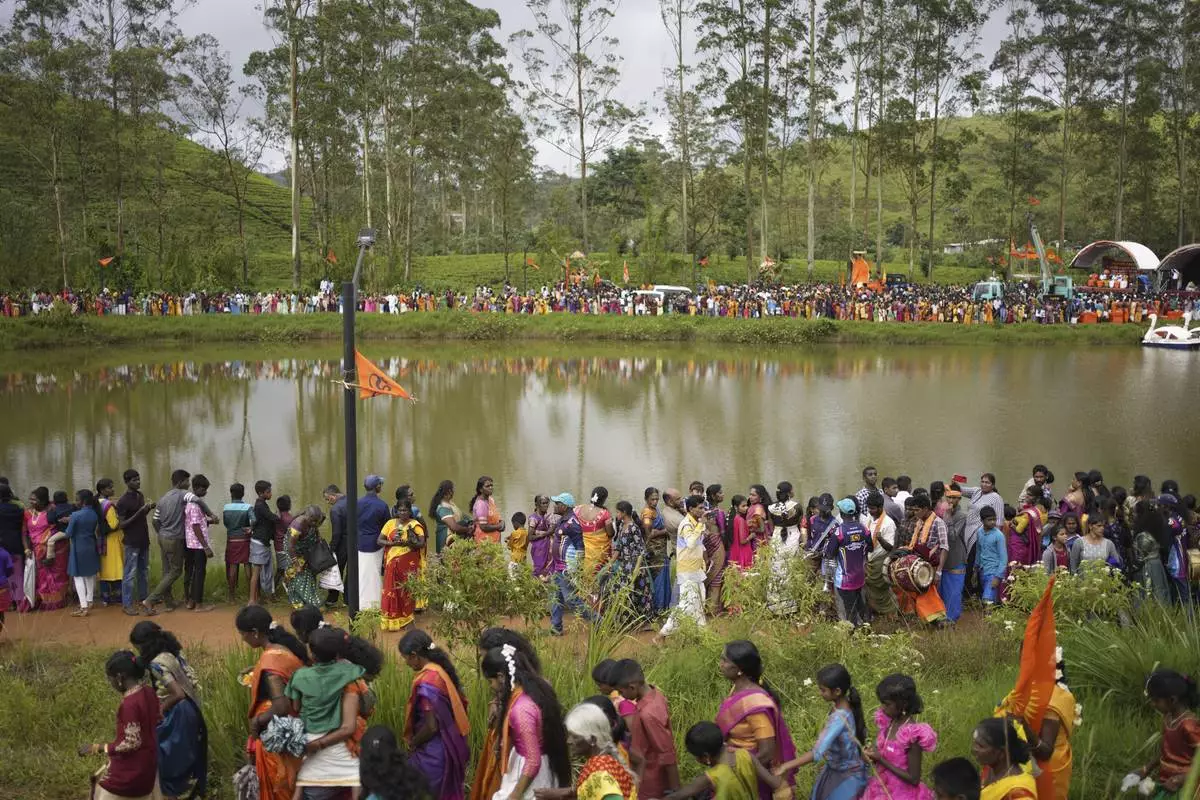
Tea plantation workers and their children take part in a Hindu religious procession in Hatton, Sri Lanka, Sunday, Sept. 8, 2024. (AP Photo/Eranga Jayawardena)
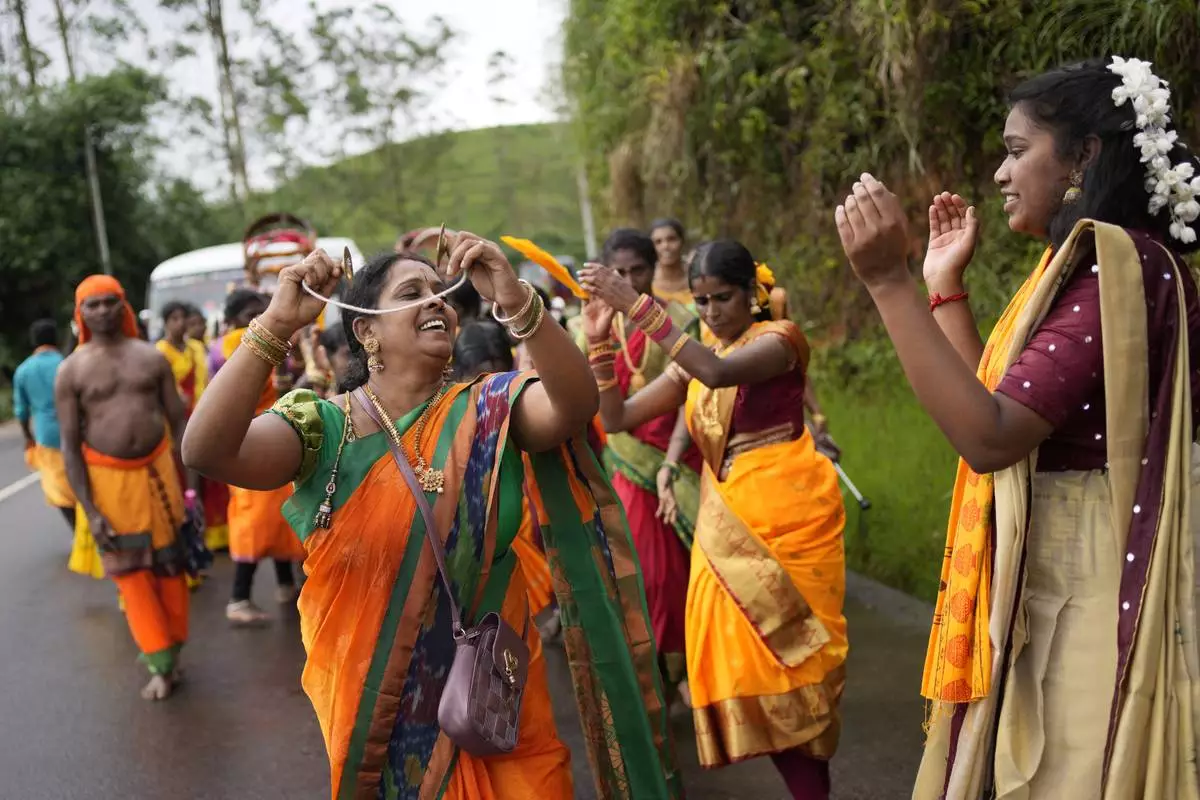
Tea plantation workers dance during a Hindu religious procession in Hatton, Sri Lanka, Sunday, Sept. 8, 2024. (AP Photo/Eranga Jayawardena)
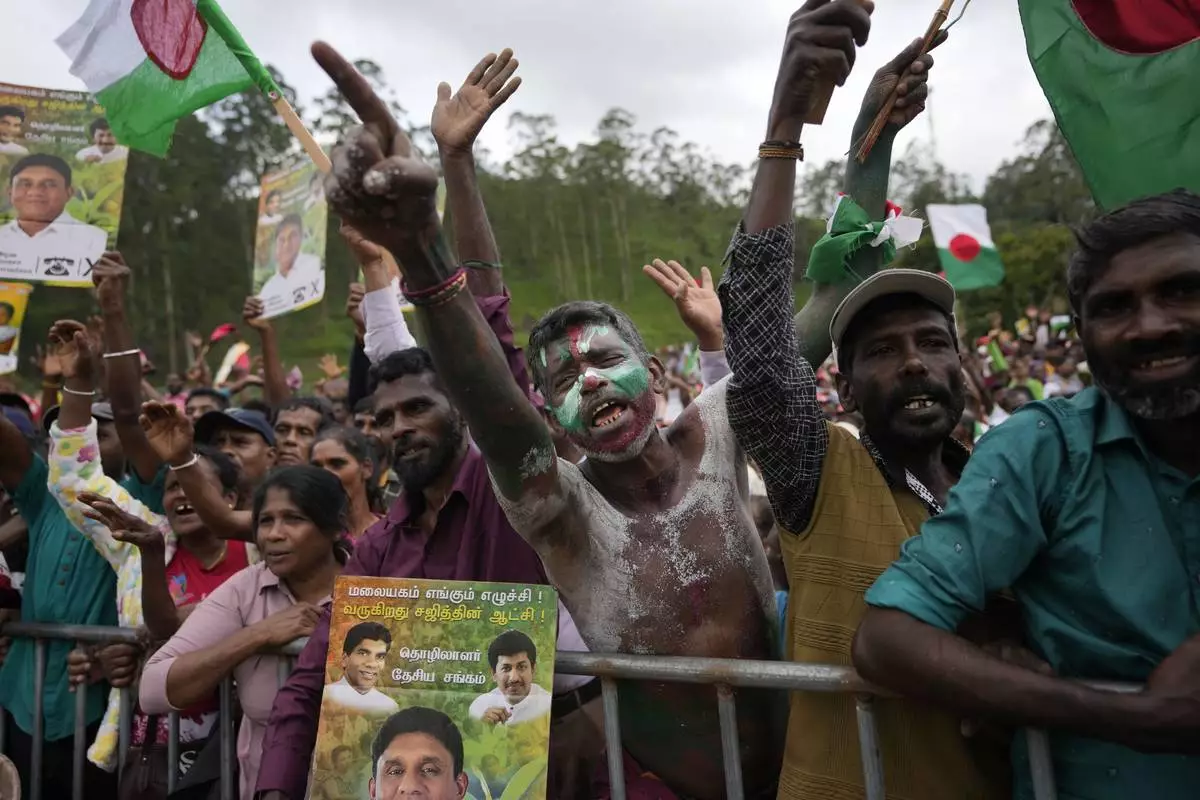
Tea plantation workers cheer for their political leaders during a presidential election rally in Thalawakele, Sri Lanka, Sunday, Sept. 8, 2024. (AP Photo/Eranga Jayawardena)
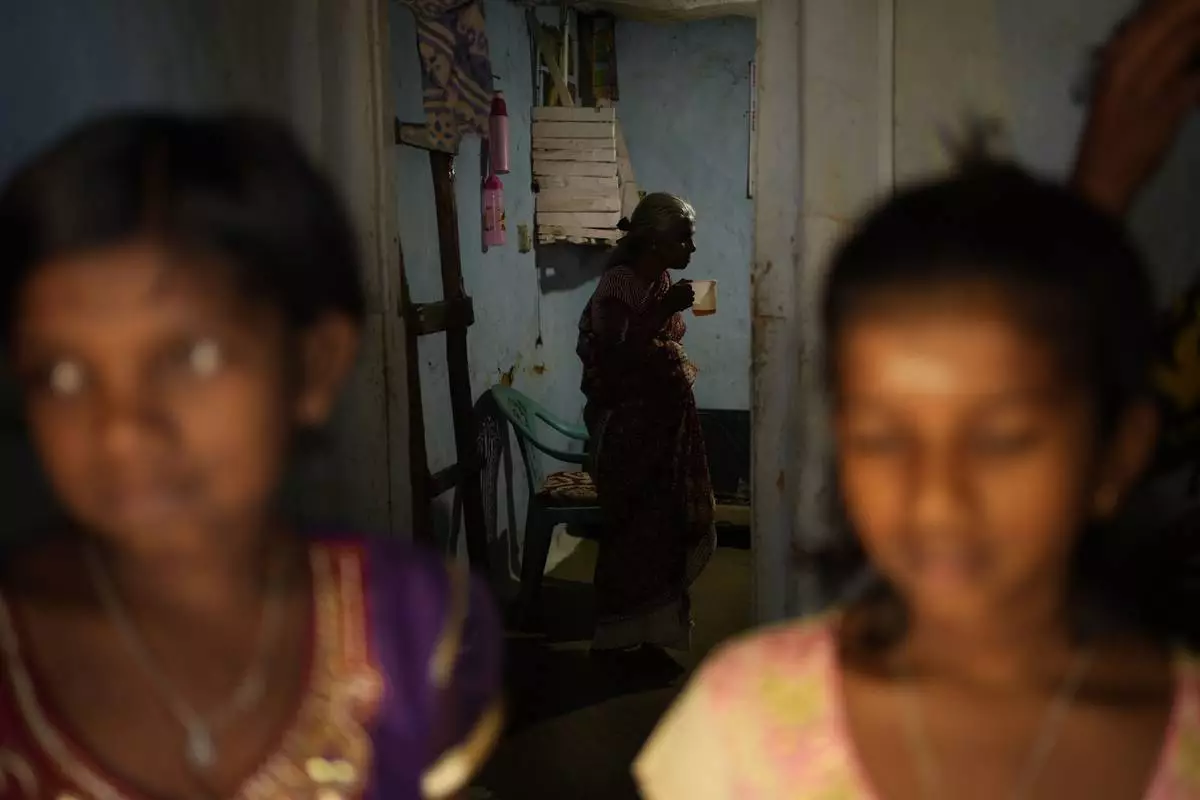
The twin daughters of Muthuthewarkittan Manohari, a tea plantation worker, stand in the foreground as their grandmother Lakshmi, center, drinks a cup of tea in their home in Spring Valley Estate in Badulla, Sri Lanka, Tuesday, Sept. 10, 2024. (AP Photo/Eranga Jayawardena)
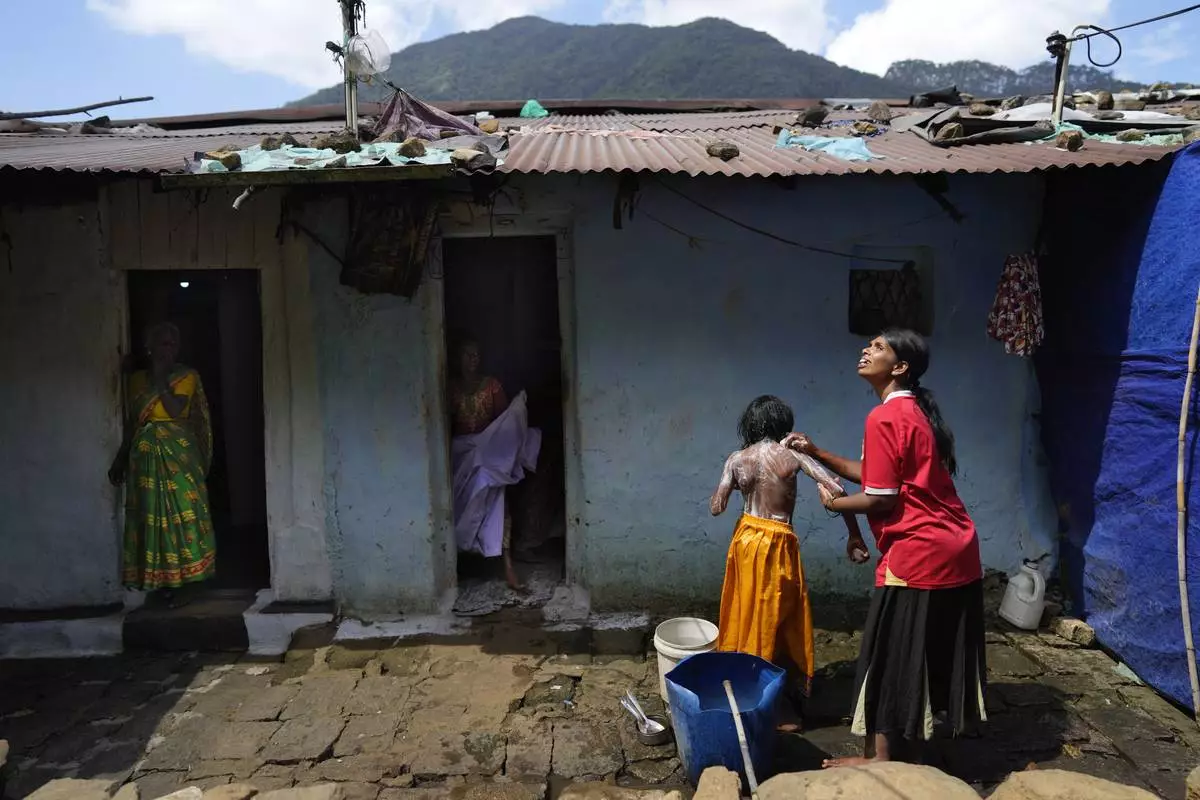
Muthuthewarkittan Manohari, a tea plantation worker, right, bathes her younger daughter Madubhashini, as her elder daughter Shalani, center, stands at the doorway of their small house in Spring Valley Estate in Badulla, Sri Lanka, Monday, Sept. 9, 2024. (AP Photo/Eranga Jayawardena)
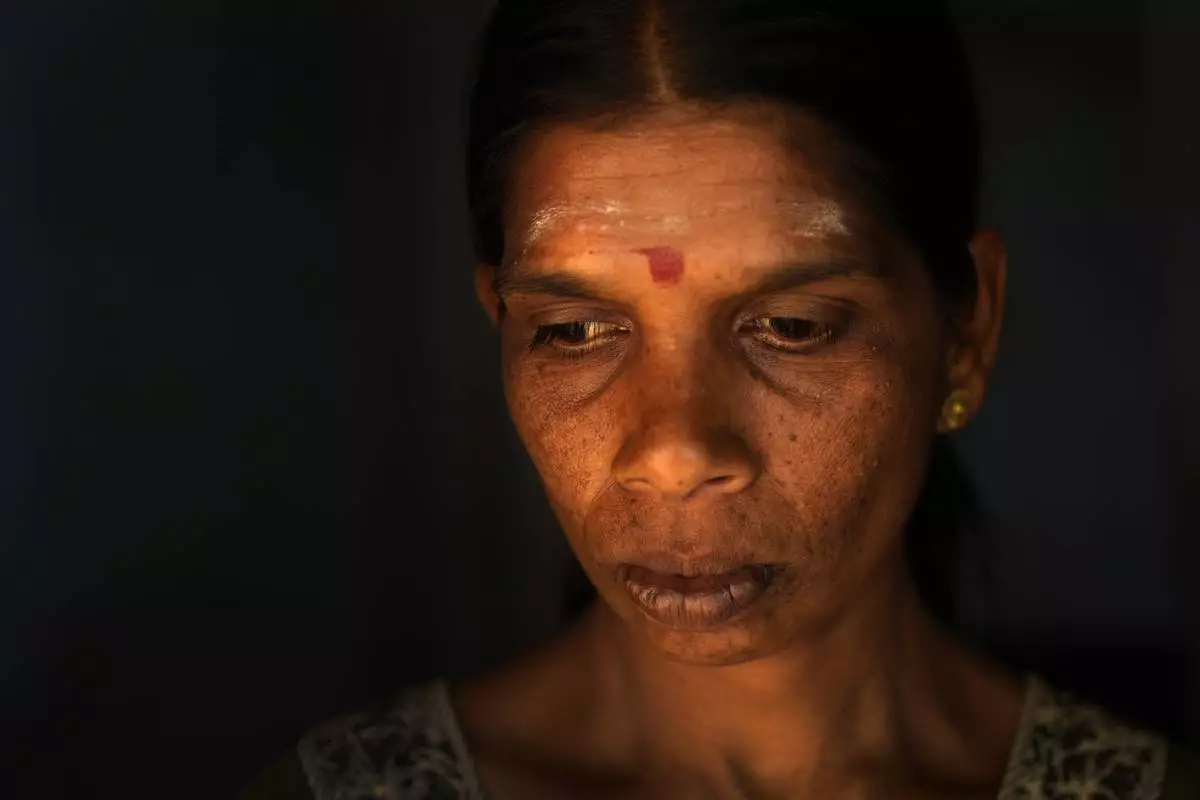
Muthuthewarkittan Manohari, a tea plantation worker, gets ready to go to work in a tea factory in Spring Valley Estate in Badulla, Sri Lanka, Tuesday, Sept. 10, 2024. (AP Photo/Eranga Jayawardena)
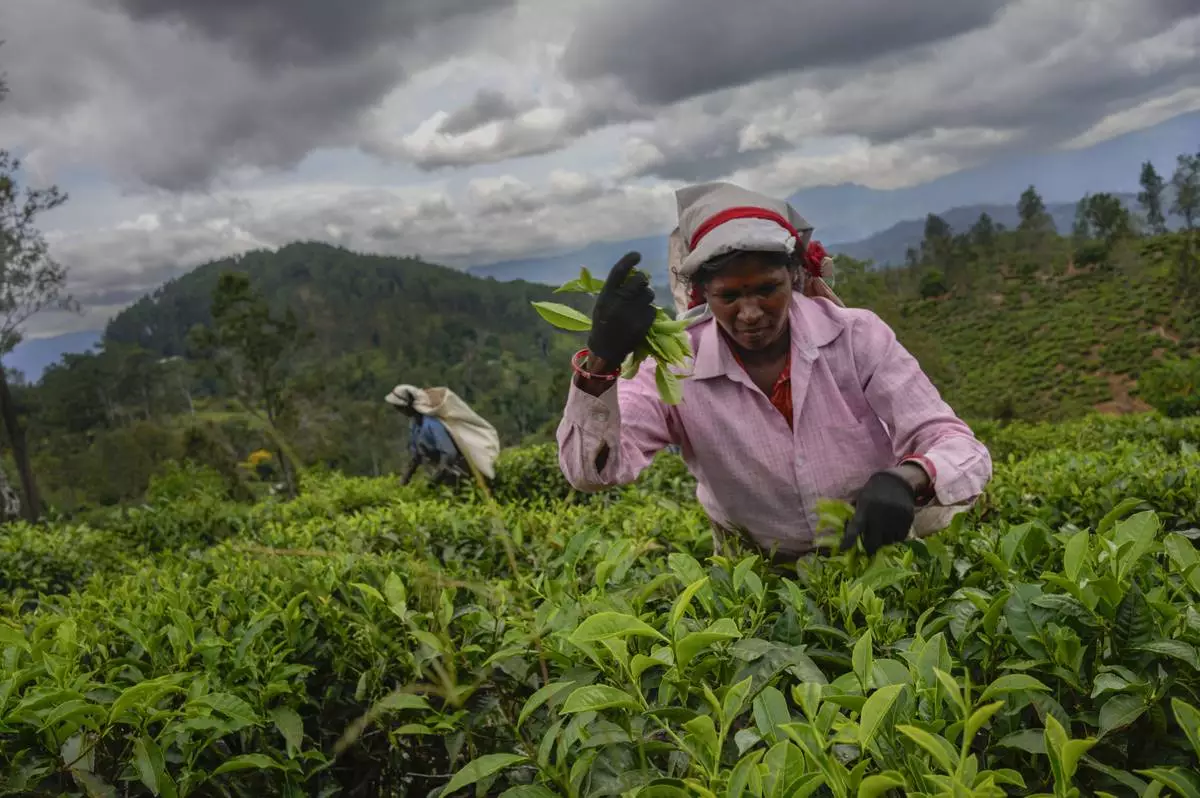
A woman tea plantation worker plucks tea leaves at an estate in Badulla, Sri Lanka, Tuesday, Sept. 10, 2024. (AP Photo/Eranga Jayawardena)


